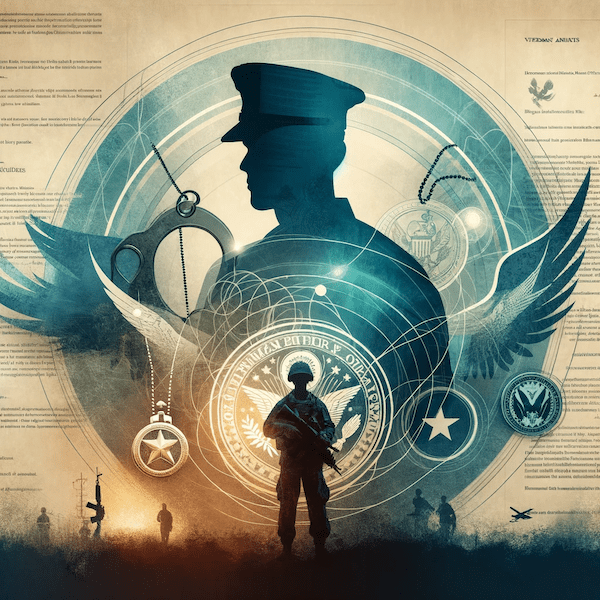Proving a Combat PTSD Stressor in VA Claims
Posted by Gregory M. Rada | December 15, 2023 | Disability Compensation
Introduction
Combat veterans, particularly those who experience distressing and traumatic events, sometimes encounter challenges when seeking benefits from the Department of Veterans Affairs (VA). Such benefits are crucial for these veterans, as the fallout from such experiences can lead to serious health issues like Post-Traumatic Stress Disorder (PTSD). In this article, we delve into a key piece of legislation, 38 U.S.C.S. § 1154(b), that plays a vital role in supporting combat veterans.

Table of Contents
- Understanding 38 U.S.C.S. § 1154(b)
- Applying 38 U.S.C.S. § 1154 to PTSD Claims
- The Impact on Veterans and the Role of Evidence
- What Happens When Service Records Don’t Corroborate Claims?
- Conclusion
Understanding 38 U.S.C.S. § 1154(b)
38 U.S.C.S. § 1154(b) is an indispensable tool for veterans who engaged in combat with the enemy. In a nutshell, it eliminates the requirement for additional evidence to corroborate a veteran’s own account of a stressor during combat, typically necessary under 38 C.F.R. § 3.304(f). This means that as long as the veteran’s account is consistent with the circumstances and conditions of their service, their testimony alone can be taken as sufficient proof that the in-service event occurred.
What this means is that if a veteran suffers a physical injury during combat, VA must presume that such injury occurred based solely on the veteran’s testimony, even if there are no service treatment records documenting the injury. That is huge.
Applying 38 U.S.C.S. § 1154 to PTSD Claims
When applying 38 U.S.C.S. § 1154 to PTSD claims, 38 C.F.R. § 3.304(f)(2) serves as a guide. This rule states that if a veteran can establish they engaged in combat with the enemy and can articulate a stressor related to that combat, their testimony alone may establish the occurrence of the stressor. Even brief participation in combat can trigger these favorable provisions, and similar rules apply to former prisoners-of-war.
The Impact on Veterans and the Role of Evidence
When a veteran makes a PTSD claim, stating they served in combat and identifies a stressor occurring in combat, the VA usually takes several steps to develop the evidence. The veteran’s claim isn’t granted simply based on the veteran’s diagnosis of PTSD, service in combat, and the identification of a combat stressor. The VA develops the case for additional evidence of combat service and further evidence that the combat stressor took place.
This is why these regulations are so important — Congress understood that the records oftentimes do not contain specific proof of a veteran’s engagement in combat.
What Happens When Service Records Don’t Corroborate Claims?
Military service records often reveal combat engagement, and a veteran’s military occupational specialty (MOS) can provide evidence of such. Certain military decorations and awards can also indicate combat and stressful experiences.
However, there are instances where a veteran’s MOS does not corroborate combat experience. In these instances, the VA does not end its efforts to develop corroborative evidence. After the VA receives the requested information, it contacts the VA Records Research Center (VARRC), which researches the records of the Army, Navy, Air Force, and Coast Guard in an attempt to verify the stressors identified by the veteran in PTSD claims.
Conclusion
While the process of obtaining benefits may seem arduous, veterans should not be discouraged. The provisions in 38 U.S.C.S. § 1154 and 38 C.F.R. § 3.304 aim to ensure that veterans’ testimonies are valued, and any reasonable doubt should be resolved in their favor. As veterans navigate this process, they should always feel empowered to advocate for their rights and seek help when necessary.







